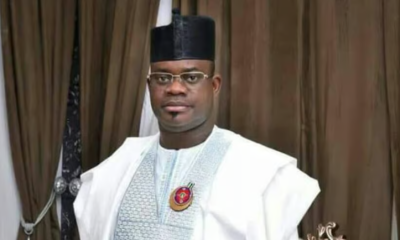The late passage of 2017 budget, among many others was among the blunders that marred the administration of President Muhammadu Buhari in 2017. The effects are still being felt by Nigerians, even in 2018.
Recall that the 2017 budget was signed into law by Vice President Yemi Osinbajo in June 2017, due to the absence of President Buhari who was on a medical vacation. Prior to this, the budget was also marred by allegations of padding. The late passage of the budget resulted in it being rolled over into 2018.
A disagreement with the National Assembly over the continued function of Ibrahim Magu as Chairman of the Economic and Financial Crimes Commission (EFCC) has led to approval of vital nominees being placed on hold. These include Deputy Governor of the Central Bank of Nigeria (CBN), Aishah Ahmad, and several members of the Monetary Policy Committee (MPC).
The Securities and Exchange Commission (SEC) remained without a board in 2017. Nominees for the SEC board were also absent from a recent list released by the Secretary to the Government of the Federation (SGF) at the tail end of the year.
While the administration has touted its fight against corruption as a cardinal agenda, not much has been achieved in the area of convictions. The cases involving former Secretary to the Government of the Federation (SGF), Babachir Lawal, and the former Director General of the National Intelligence Agency (NIA), Ambassador Ayodele Oke, are yet to make significant headway. Various high-level cases have to date remained unresolved. Former governors and ministers accused of corruptly enriching themselves have ended up bailing themselves, while they walk free.
ALSO SEE: Naira remains steady as BDC operators advise CBN on convergence
Also due to some policies, unemployment levels closed at 18.8% compared to the 14.4% in the first quarter of the year, according to statistics from the National Bureau of Statistics (NBS). A total of 15.9 million Nigerians were unemployed as at Q3 2017.
The aviation industry didn’t gain much traction in 2017. The much touted concession of the airports has been put on hold, due to agitations by unions. A proposed national carrier has also not moved beyond the memorandum of discussion.
Arik and Aero Contractors are still under the administration of the Asset Management Company of Nigeria (AMCON). Ethiopian air, which had earlier shown interest in the airlines, pulled out after AMCON denied knowledge of the matter.
The Education sector witnessed very few positive developments in 2017. A presidential summit on education was held belatedly in November, after nearly three years in office. The Academic Staff Union of Universities (ASUU) and other unions went on the strike over non implementation of prior agreements.
The health sector also saw very little activity, save for the monkey pox virus that has been contained and the resumption of the production of vaccines in conjunction with May and Baker.

 Entertainment1 week ago
Entertainment1 week ago
 Business1 week ago
Business1 week ago
 Health1 week ago
Health1 week ago
 Business1 week ago
Business1 week ago
 Latest1 week ago
Latest1 week ago
 Entertainment1 week ago
Entertainment1 week ago
 Football1 week ago
Football1 week ago
 Entertainment5 days ago
Entertainment5 days ago













